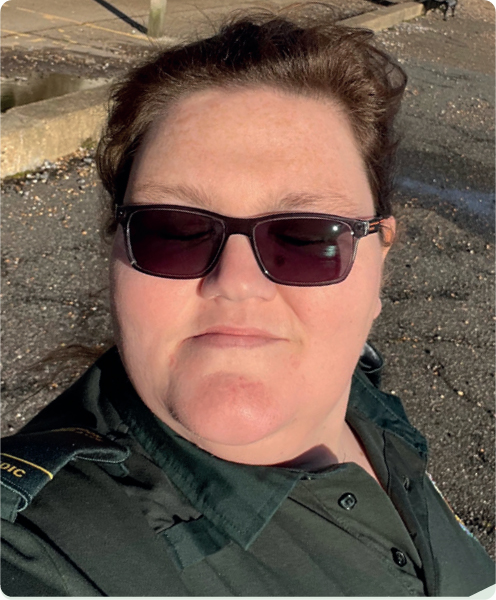
In December, I undertook my Certificate in Emergency Response Ambulance Driving (CERAD) Level 3, which was very content heavy and intense, lasting for 4 weeks, with a short interlude for Christmas and New Year. On top of London Traffic, having never driven so much as a car around the capital, my main challenge was driving a 5-tonne ambulance, at speed in paces and then with blue lights and sirens to boot. My first time switching on those blue lights lasted all of 7 minutes. My nerves had the better of me and I asked my driving tutor to let me return to normal driving conditions, feeling like a failure for not continuing longer like my other colleagues had. Over the next few days, however, we built up my confidence. As each of the drives gradually became longer, I began to feel more comfortable behind the wheel.
As the driving progressed towards Christmas week, our blue light drives took us into central London, down Regent Street, through Camden Market and for a quick visit around Buckingham Palace. There were lots of shoppers and lots of pretty Christmas decorations to look at! We also headed out to Dover, having our lunch break near the cliffs, which in December was very breezy! My final assessed blue light drive was on 3rd January, which I passed with flying colours, with only one minor infringement.
Thursday 4th January saw me heading to Fulham Ambulance station to commence Operational Placement Centre (OPC). This is where I met my crewmate, a trainee assistant ambulance practitioner and OPC mentor, a band 6 Paramedic, with whom I would work for the next 5 weeks.
I have been to several jobs ranging from lift assists to red flag sepsis. The first two shifts on OPC included eight jobs in total, seven of which were falls of varying descriptions. One of the falls was from a bouldering facility; the patient in this incident had a clearly broken arm. This was the first time I could administer a controlled drug; I cannulated the patient, gave IV paracetamol, then completed verification and started to draw up morphine. I was incredibly nervous administering morphine. As a student, I had witnessed its administration but could not give it. This made me feel very ‘adult-like’, which was also a good point to reflect on.
On day four of OPC, we had been mobilised to a seizing patient. There were a few more paramedics on scene with us, but this time I was assisting the paramedic on the car. It was also the first time I administered midazolam to control multiple seizures. By the end of the first week, I had administered morphine and midazolam, as well as providing care to some very poorly sepsis patients. This was a baptism of fire for me. My OPC mentor has guided me through chaotic shifts packed full of poorly patients, and similarly, shifts which have been much calmer. I have had chance to drive on lights and sirens—which at times has been more nerve wracking than learning how to drive.
Last week, my mentor invited me to a pub quiz, where she had also invited some of her other mentees, from over the last year. We had such a good time, we even won a team cactus!
As I write this, I am 2 days away from finishing OPC. By the time of my next update, I will be at group station, working as a crew of two and no longer under direct supervision of my OPC mentor.


